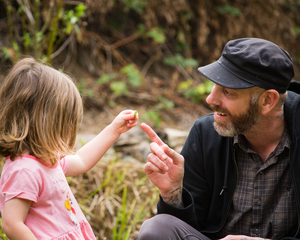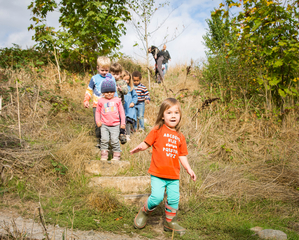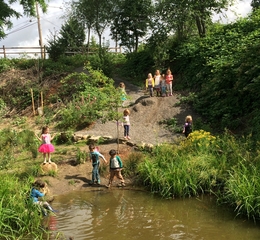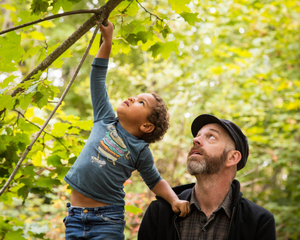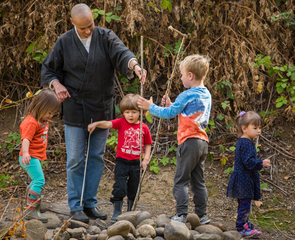The Montessori method, developed by Dr. Maria Montessori, (1870-1952) values the development of the whole child: intellectual, emotional, physical and social. It is based on a view of the child as naturally eager to learn, and the goal is to support and guide this desire in a thoughtfully prepared environment. Children are free to learn at their own pace and according to their interests, and are given uninterrupted blocks of time to work.
Many of the elements of a Montessori education naturally promote mindfulness – a quality of active, open attention on the present moment, accompanied by a non-judgmental attitude. In both Montessori and mindfulness practices, attention to the present, the here and now, is a key element. Mindfulness training involves bringing awareness to sensory experience. In a Montessori classroom, children learn to make fine distinctions in the information they receive through their senses. The taste of an orange, the color of a flower, the sound of a bell or bird song, the feel of the ground under our feet are all opportunities to become mindful of the world and how we experience it.
An emphasis on bringing awareness to the activities of daily life is fundamental in Montessori education. Children can explore practical, everyday activities and learn to appreciate their value. Young children become absorbed in washing dishes, cutting bananas and arranging flowers, and take this attitude of caring for their environment with them into their lives.
Some Montessori activities closely resemble mindfulness practices. An example is the “Silence Game”. A bell is rung and the class becomes silent and listens, with the aim of becoming fully aware of their surroundings. Students then discuss what they heard and experienced. Children have a natural appreciation for silence and this simple exercise can have profound effects. Another game, “Walking on the Line”, resembles walking meditation. Children carefully place one foot after the other on a circular line. They pay attention to the feeling of placing their foot, shifting their weight from one to foot to the other, balancing and being supported by the floor beneath them. These activities give children ample opportunities to coalesce their body, mind and spirit and aid them in becoming masters of themselves.
Montessori teacher training is mindfulness-based. Teachers engage in introspection, examining their inner selves so that they can best meet the needs of their young students without allowing their own needs to interfere. They learn to observe children carefully, and meet them with loving-kindness and respect for their individual learning process. In this way, they work to develop in themselves the qualities they wish to cultivate in their students.
